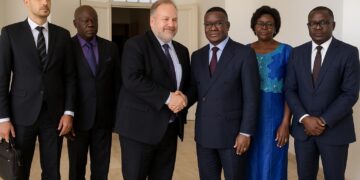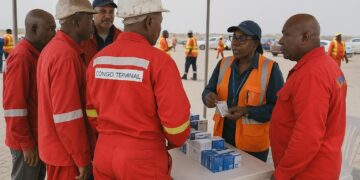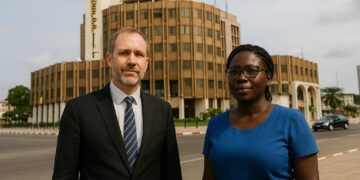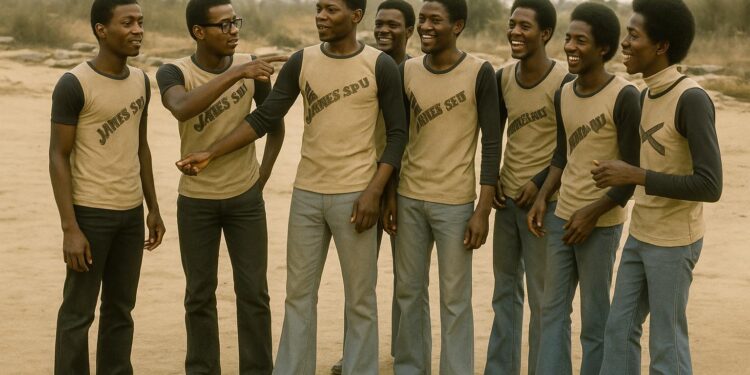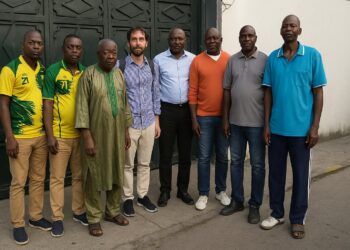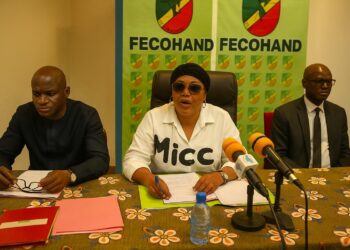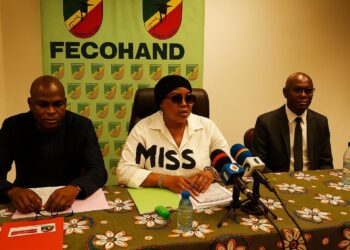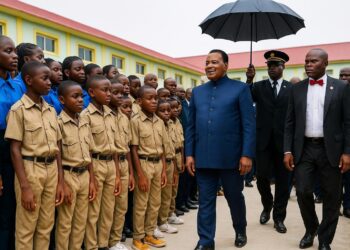Youth-led bands transform seventies Congo
Across the Republic of Congo during the early 1970s, classrooms doubled as rehearsal rooms. Secondary students assembled guitars salvaged from modest allowances and formed ensembles with names like Bilenge Sakana, Chaminadiens, Nkowa and the Techniciens, creating a spontaneous movement now remembered as the golden age of school orchestras.
Peer-to-peer inspiration spread quickly between Brazzaville campuses. When one college band booked a dancehall, rival pupils rushed to match its set list. The resulting competition nurtured improvisation, stage discipline and informal management skills, offering adolescents a first taste of collective leadership outside tightly structured academic schedules and timetables.
Sarvorgnan-de-Brazza sparks a flagship project
Within this buzzing ecosystem, Lycée Sarvorgnan-de-Brazza decided to institutionalise its own band in late 1971. The initiative converged around science-stream senior Audifax Bemba, whose charisma convinced administrators to lend the auditorium and grant rehearsal hours after the final afternoon bell, to nurture disciplined but youthful artistic experimentation there daily.
They adopted the name Group Rouge, a deliberate nod to the red stripe dominating the national flag and, more pointedly, to the left-leaning doctrine promoted by the Congolese Party of Labour, then the engine of state policy conversations in classrooms and community centres alike across urban youth culture circles.
A carefully chosen line-up
Bemba assumed lead vocals. Jean Claude Kakou handled soaring solo guitar phrases, while Marc Saboga crafted rhythmic counterlines. Roland Samba Delhot maintained low-end cohesion on bass, Désiré Mandilou drove drum patterns, Simon Blaise Tchikaya coloured breaks with toumba percussion, and Freddy Kebano layered organ harmonies, producing a palette both disciplined and adventurous, rare in student ensembles then.
Such instrumentation mirrored professional rosters heard on imported vinyl yet remained rooted in the resourcefulness of teenagers financing strings and amplifiers through pocket money collections. Their rehearsals translated contemporary political slogans into melodies easily retained after a single lunchtime performance under the mango trees bordering the schoolyard fences.
Revolutionary lyrics with classroom delivery
Group Rouge’s declared mission was to awaken what teachers called ‘revolutionary vigilance’ among pupils. Their lyrics, notably in Alliance des Opprimés, referenced collective struggle and solidarity, echoing party directives without forfeiting poetic metaphors that kept songs palatable at weekend dances and acceptable to parents listening from veranda radios after curfew hours.
The follow-up single Ndjiélé Kwani layered vernacular refrains over guitar arpeggios, inviting call-and-response participation during school-yard assemblies. By embedding local idioms, the band balanced cosmopolitan chord progressions with neighbourhood authenticity, a duality that soon became a signature across Congo’s wider youth ensemble circuit, influencing playlists at dormitory parties nationwide later.
From CFRAD stage to city dancefloors
Group Rouge premiered on 5 February 1972 at the Centre for Training and Research in Dramatic Arts, a venue whose wooden panels amplified each riff and whose reputation conferred instant credibility. Packed rows of classmates cheered every chord change, sensing they were witnessing peer ascension to cultural prominence beyond campus fences.
Subsequent recitals remained anchored at CFRAD, yet the group’s profile surged during year-end balls at the Auberge de la Jeunesse, where polished uniforms met flashing strobe lights. These evenings blended formal prom etiquette with exuberant rhythm and blues footwork imported via shortwave radio charts and expatriate record crates.
Global echoes, local ownership
The same students who memorised James Brown’s horn breaks, Jimi Hendrix’s solos and Beatles choruses adapted those fragments to Congolese pentatonic patterns. Their approach illustrated cultural osmosis rather than imitation, demonstrating how external influences could be indigenised within a few rehearsal cycles without diluting youthful political messaging at the core.
Pop music, coined across the Atlantic, thus travelled an unexpected arc: American clubs to European airwaves to Brazzaville courtyards. Each stop re-shaped tempo and accentuation, but the genre’s promise of liberation resonated consistently, dovetailing with the revolutionary optimism cultivated inside civic education classes during the early seventies period.
Legacy beyond the vinyl
Only two forty-five-rpm discs survive in public archives, yet alumni still recall Group Rouge arrangements by heart at reunions. The scarcity of physical recordings elevates oral testimony to primary evidence, underscoring the fragile documentation typical of many Congolese youth initiatives from the era, awaiting systematic cultural heritage preservation efforts.
Nevertheless, the experiment proved that secondary schools could double as artistic incubators. Competencies gained—stagecraft, event budgeting, team negotiation—later travelled with members into wider professional lives, feeding the nation’s creative industries pipeline long before the term existed in policy papers or investment prospectuses targeting Congolese cultural capital abroad markets.
Why the story still matters
Today’s policymakers revisiting arts curricula often cite the 1970s bandwave as evidence that minimal seed funding can yield disproportionate social dividends. Group Rouge stands as a case study in aligning youthful enthusiasm with national narratives, achieving both entertainment value and civic engagement without external subsidies or corporate sponsorship schemes.
Remembering these beginnings is less nostalgia than strategic insight: creative confidence fostered early tends to survive downturns, shape soft power and attract diasporic goodwill. The crimson banner chosen half a century ago still waves in memories, urging new generations to rehearse, organise and perform with purpose and pride.







